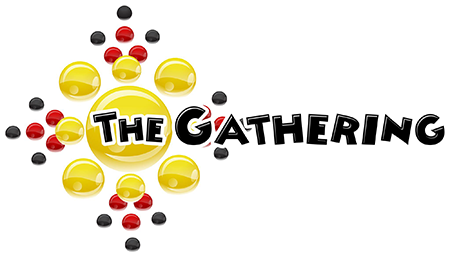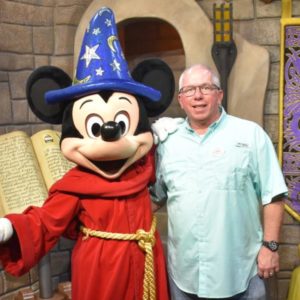by Bob Adams
Our capacity for learning is a part of being a human being. From birth, we are on a fast track of learning – movement, speech, understanding, and so forth. Unfortunately, many people equate “learning” with “schooling,” and when you’re done with school, you’re done with learning.
We are uniquely endowed with the capacity for learning, creating, and growing intellectually – and it doesn’t have an expiration date tied to an event, like graduation.
The practice of lifelong learning has never been more important to leaders than it is today. The necessity of expanding your knowledge through lifelong learning is critical to your success.
Take reading, for example. Many of the most successful people in today’s organizations read an average of 2-3 hours per day. No longer limited to books, reading is a lifelong learning activity that can be done online anywhere at anytime.
Learning is the minimum requirement for success as a leader. Because information and knowledge on everything is increasing every day, your knowledge must also increase to keep up.
Learning how to learn is more important than ever. Dedicate yourself to trying and learning new ideas, tasks, and skills. You don’t need to be aware of everything all the time but learning new skills faster and better – that in itself is a tough skill to master.
THE QUICK SUMMARY – Never Stop Learning by Bradley R. Statts
Keep learning, or risk becoming irrelevant.
It’s a truism in today’s economy: the only constant is change. Technological automation is making jobs less routine and more cognitively challenging. Globalization means you’re competing with workers around the world. Simultaneously, the Internet and other communication technologies have radically increased the potential impact of individual knowledge. The relentless dynamism of these forces shaping our lives has created a new imperative: we must strive to become dynamic learners. In every industry and sector, dynamic learners outperform their peers and realize higher impact and fulfillment by learning continuously and by leveraging that learning to build yet more knowledge.
In Never Stop Learning, behavioral scientist and operations expert Bradley R. Staats describes the principles and practices that comprise dynamic learning and outlines a framework to help you become more effective as a lifelong learner. The steps include:
- Valuing failure
- Focusing on process, not outcome, and on questions, not answers
- Making time for reflection
- Learning to be true to yourself by playing to your strengths
- Pairing specialization with variety
- Treating others as learning partners
Replete with the most recent research about how we learn as well as engaging stories that show how real learning happens, Never Stop Learning will become the operating manual for leaders, managers, and anyone who wants to keep thriving in the new world of work.
A SIMPLE SOLUTION
Today, the world moves much faster than it did even five to 10 years ago, and there’s more competition than ever. A vast majority of people will inevitably find themselves feeling like they’re falling behind if they’re not constantly investing in themselves. Or they might even feel unemployable at one point or another in their careers. This is true for many professions. A feeling of staleness can encroach as new technologies continue to be developed and implemented in the workplace, and the younger generation comes in with new skills, reshaping the modern workplace.
Learning isn’t a moment in time, nor is it just about acquiring a set of skills or generalized knowledge. It’s not specific to a certain domain you function in.
To succeed in this rapidly changing environment requires continual learning – how to do existing tasks better and how to do entirely new things.
Failing to learn and adapt means being left behind. This creates meaningful risk for our organizations, ourselves, and our children. It’s not just knowledge that’s necessary – it’s using that knowledge to build more knowledge. In other words, to learn.
Key Elements to Becoming a Dynamic Learner
Valuing failure – Dynamic learners are willing to fail in order to learn.
Process rather than outcome – Dynamic learners recognize that focusing on the outcome is misguided, because we don’t know how we got there, whereas a process focus frees us to learn.
Asking questions rather than rushing to answers – Dynamic learners recognize that “I don’t know” is a fair place to start – as long as we quickly follow with a question.
Reflection and interaction – Dynamic learners fight the urge to act for the sake of acting and recognize that when the going gets tough, the tough are rested, take time to recharge, and stop to think.
Being yourself – Dynamic learners don’t try to conform; they’re willing to stand out.
Playing to strengths – Dynamic learners don’t try to fix irrelevant weaknesses; they play to their strengths.
Specialization and variety – Dynamic learners build a T-shaped portfolio of experiences – deep in one area (or more) and broad in others.
Learning from others –Dynamic learners recognize that learning is not a solo exercise.
Bradley R. Statts, Never Stop Learning
A NEXT STEP
To succeed in this new environment requires continual, lifelong learning. At its simplest, lifelong learning requires learning how to do existing tasks better and how to do entirely new things.
In order to risk becoming irrelevant, create a plan to become a lifelong learner.
Set aside some time where you can be undisturbed for at least two hours. Draw a line in the middle of four chart tablets, and write two of the key elements listed above on each half.
Without a lot of processing, proceed to list activities and ideas that you are currently practicing in each area in one color marker. Step back and reflect on what you have written.
Now, using a different color marker, list activities and ideas that you aspire to in each of the eight areas.
When you have completed this task, read what you have written down aloud. In each of the eight areas, circle two activities and ideas that you will focus on improving or developing in the next 90 days.
Before you end this time, look ahead on your calendar 90 days, and block some time out to repeat this exercise.
Excerpt taken from SUMS Remix 113-1, released March 2019.






